
According to the assessment of many in the diaspora the Government Office for Croats outside the Republic of Croatia, which you have been leading for several months now as State Secretary, has not proven very effective under the former Social Democrat led government. Indeed, it has remained a certain enigma when it comes to the set of factors influencing advancement in the relations between the diaspora and the homeland. Your government is relatively new and your Christmas messages suggested possibilities of new directions, that is, new paths of cooperation and collaboration. Could you please tell us briefly what are those possible directions, that is, what are those new ways of working on drawing the diaspora and the homeland closer together?
– The Croatian emigrants have in a relatively short time recognised the values they mutually share with this government: dynamic, courageous, contemporary, systematic approach to work, investment of exceptional personal professional efforts, reliable in guarding the Croatian national values. The recognition of that and such work is in the building of trust and cooperation with our emigration, which has a long tradition in that approach to work. Our work is exactly directed at the strengthening of the partnership with the emigrated Croatia.
Examples that reflect such a new, systematic approach by the Central government office for Croats outside the Republic of Croatia in the implementation of public policy towards Croats living outside the homeland include the forming of the Coucil for the learning and the teaching of the Croatian language as a second language, as a foreign language and as an inherited language, and this represents a significant step in the direction of a professional approach to the fundamental question of keeping the Croatian identity among the emigrated Croats – the learning of the Croatian language. I also need to emphasise that we have the signing of the Agreement between this Office and the University of Zagreb regarding the development of study programs and the integration and the strengthening of Croatian togetherness. Of course other Croatian universities are invited to the cooperation. Also, our Office has initiated the question of the double-taxation of foreign pensions included in the complete Taxation reform the Ministry of Finance is responsible for.
We need to keep in mind that the relations between Croatia and emigrated Croats have for years been on an unsatisfactory level. This government is changing that. Of course, much work still remains to be done. Personally, I consider the gaining of the Croatian citizenship a priority; this process is unnecessarily taking too long. It’s noticeable from our everyday communications with our emigrés, who are intensively contacting our office, that our office is indeed recognised as a government body towards which Croats from outside our country are feeling a new kind of trust. I consider the work with the often far-away communities and people a big success of this government as well as of the people that cooperate with us.
Could you please explain to our readers what are the main roles entailed in the work of the Government Office for Croats outside the Republic of Croatia?
– One of the fundamental tasks of this Office is in the protection of the rights and the interests of emigrated Croats, the preservation and the strengthening of their identity, the strengthening of cooperation and the promotion and the nurturing of good partnership relations. Having this in mind, it’s important to emphasise that the needs and the position of Croatian communities in the world differ, and the task of this Office is to listen to them, follow and adapt its work in accordance with the arising specificities.
The Office’s role is undergoing modernisation, just as the emigration is being modernised. The modern emigrant is no longer a synonym for permanent absence, nostalgia and an unrealised yearning for the homeland. Today, the use of the advantage of mobility and the digital era, the emigrant becomes a partner. It’s a matter of lasting two-way partnership cooperation. The emigrant is a partner whose real needs are addressed by the Office. The Office’s proactive role in that partnership needs to be maintained in both the diaspora and the homeland.

Are you personally satisfied with the work and the contribution to the Office’s work brought by the representatives, that is, by the special advisers from the diaspora? If yes, what is it that fills you with satisfaction, if not, where and how could that contribution be improved?
This government has adopted a clear, open responsible attitude towards all Croats who live outside Croatia’s borders. Prime Minister Andrej Plenkovic’s support, which he clearly expressed at the Vukovar meeting of the Advisory Committee for the Government of the Republic of Croatia for the Croats living outside the Republic of Croatia, speaks in favour of that. I have high expectations from our emigrés, as well as from this government, from all collaborators, but also from myself. The contribution by the Croatian emigrés in the creation of Croatia is immeasurable. Primarily, when we speak of the time when the mere thought of the independent state was suffocated by totalitarianism. Our emigration was the one that kept it alive. Since the togetherness between the homeland and the emigrated Croatia resulted in the creation of the state, I am justified in considering that today we are obliged to continue that collaboration and continue with the joint building of Croatian institutions, Croatian economy, Croatian science and education, Croatian culture and tourism. One must never cease being proud about the fascinating success of the togetherness between the emigrated and the homeland Croatia, my message and the message of this government is unambiguous: let’s build the state into which your children will want to return through joint cooperation.

Do you think there is room for further spreading of cooperation with the diaspora when it comes to the type of activities and issues? What areas of activity would these cover? Has the diaspora via its representatives in the Office you lead perhaps shown a need to widen cooperation?
The adoption of legislative regulations, care for Croats outside Croatia, the development of our mutual cooperation and the strengthening of relations have been placed at an institutional platform. Which is good. But in addition to that, it’s important to act and work with planning, but also with a heart. I’m glad my collaborators share my views. That is, people who have once been a part of the emigration also work in the Office. The selection of such collaborators represents a certain added value that is essential in the building of understanding and trust, but also an indication that the state bodies do indeed have a need for their emigrants. I admit, the connecting of Croats from outside the Republic of Croatia with the appropriate institutions, the channeling of such cooperation, fills me with optimism, because possibilities are already palpable, so are ideas, projects that can be realised through togetherness between the homeland and the emigrated Croatia.
The Second and Third generations of Croats in the diaspora represent an important part of the Croatian corpus, are there in Croatian interests any specific programs or initiatives in your Office designed to work with these generations?
– Of course, we are especially happy when members of the Second and Third generations respond to our programs and projects, such as the popular Croatian language course organised by this Office and implemented at the Faculty of Philosophy in Zagreb, Split and Rijeka. It’s amazing seeing the Croatian heart beat in the Croatian descendants, who are often even the Fourth or Fifth generation. Their love towards Croatia is irrefutably ingrained deeply.
Descendants of Croatian emigrants are one of the most important but also one of the most demanding areas of work this Office is directed at.
An interesting thing I have recognised through my work at this Office is that the youth in diaspora, pressured by the new business culture in the West, are more and more considering returning to Croatia. The initiatives they are turning to this Office with are no longer exclusively associated with their work within the Croatian communities in the diaspora, but have more to do with the activities with which they connect their professional experience in the diaspora as well as with the economic opportunities they recognise in the homeland.
Croatia is becoming a country they’re proud of, our tourism, science and sports successes are globally recognised, and besides love and passion towards Croatia they acquired through nurture within their families, their churches, their Croatian clubs across the world, there’s something new emerging – they personally want to be a part of Croatia. That generation is conscious of the fact that it is possible to live and do business in more locations than one, even on different continents. Besides, if foreigners recognise Croatia as a desirable place to live in, it’s logical to concude that such a trend has caught onto our young emigrés.

We can often hear in the diaspora that, given the size of Croats to the Third generation that live in the diaspora, some 3.5 million, the same population is almost insignificantly represented in the Croatian Parliament and, hence, that same fact leaves the impression that the diaspora is not as important to the homeland Croatia as are, for instance, the ethnic minorities in Croatia that are represented in the Parliament at a much better or higher level. Do you have any comment on such opinions from the diaspora? Do you personally consider that the diaspora could be represented in the Parliament by a higher number of seats, and if yes, how do you think that could be achieved?
– The Office continually points out to the relevant political factors the question of the representation in the Croatian Parliament of Croats living outside Croatia. Although the solving of that question is not within the jurisdiction of this Office, I believe that, based on the possible, it is necessary to do the best. If they act wisely and in good faith utilise that which is available to them Croats have the tradition of achieving more than others who have more resources and capacity.
Problems in obtaining Croatian citizenship by people of Croatian roots born in the diaspora are constantly mounting and the difficulties many experience in that path are discouraging. Problems of access, that is, the receiving of information to the ways of proving ones Croatian origins quite often lead to people having to wait up to three years for their citizenship applications to be processed, and faced with these difficulties many give up or withdraw their applications. Do you believe your Office could serve the function of assisting Croats living abroad with these problems, if it already isn’t doing it as a part of its regular business?
– As I have already emphasised, I consider the procedure of gaining Croatian citizenship a priority issue, which we must deal with in faster and more efficient ways. Our Central Office, in cooperation with the responsible government department – the Ministry of Internal Affairs, are already actively working on that. Our joint view is that changes to and amendments of the relevant legislation on Croatian citizenship are needed. This Office has initiated them and I believe that an optimal solution will be found. Receiving Croats, their descendants and spouses into the Croatian citizenship within an appropriate time-frame is essential. Your question doesn’t only represent the removal of administrative barriers but it also represents a strategic goal of this government.

What kind of information do you think your Office mostly needs from the diaspora?
– Without communication good results from work are not possible. Recognising a good project, a good idea, recognising the moment in which to act, passing on the message in a qualitative manner to those at whom the message is directed, are invaluable. The Office remains at disposal to all: every communication is important to us. The communication platform that includes the Croatian Catholic missions and the diplomatic-consular posts, as the first links between the emigrés and the homeland, is definitely a foundation. In their work the Croatian Catholic missions have a tradition, the knowledge and are truly shaped in line with the needs of our emigrés. The diplomatic-consular missions also represent an important partner for us. The creation of such foundations that will encourage closer and faster cooperation with the many Croatian associations and organisations, as well as with individals is needed the most.
The advisers’ mandate is drawing to an end for the current diaspora representatives or advisers with whom your Office is working, are you planning to retain the existing process of candidate nominations and selection (via clubs and organisations) or are you planning to change that process and criteria for the next generation of special advisers from the diaspora?
– The selection process and the number of members of the Advisory body are regulated by legislation on the Republic of Croatia Relations with Croats outside the Republic of Croatia. There have been no problems so far that would indicate that the manner of candidate selection or their number need changing. But as far as the way the Advisory body is working, the sittings and the mutual coordination are concerned, I believe that certain changes will occur. Members of the Advisory body will initiate such changes in accordance with the existing operational Rules. The Office is prepared and open to their suggestions. As I have emphasised a few times, we need to keep in mind that problems and challenges vary within the communities in Europe, withinn those abroad, among Croats in Bosnia and Herzegovina or within ethnic minorities in Croatia. I believe that members of the Advisory will suggest certain initiatives in that direction.
Do you have any message for the diaspora that may not have been covered in the questions of this interview, if yes, please pass it on here.
– My wishes and everything that I would like to say to the Croats outside the Republic of Croatia cannot be fitted into few sentences. Nevertheless, that which I always emphasise is that Croatia cannot be complete without its diaspora, without Croats in Bosnia and Herzegovina and without the Croatian minorities. We are as strong as we are united, and our weakness is only defined by our disunity or disconnection. Accordingly, the Office has taken upon itself the responsibility of encouraging and assisting the projects and activities that strengthen Croatian togetherness. The reality of the Croatian people as a global family with roots in the homeland and blooming branches across the world is becoming increasingly clearer.
Written and prepared by Ina Vukic


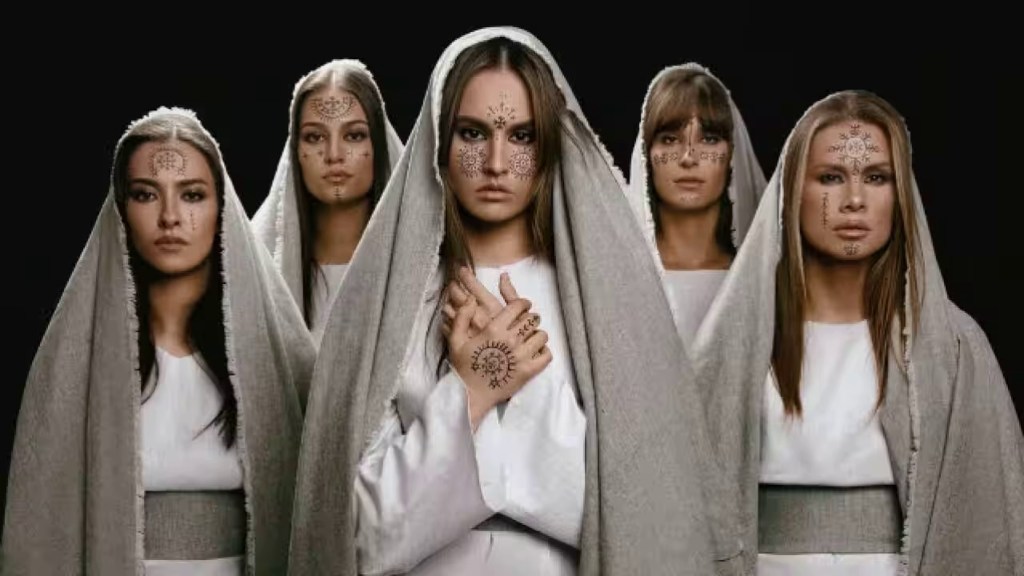
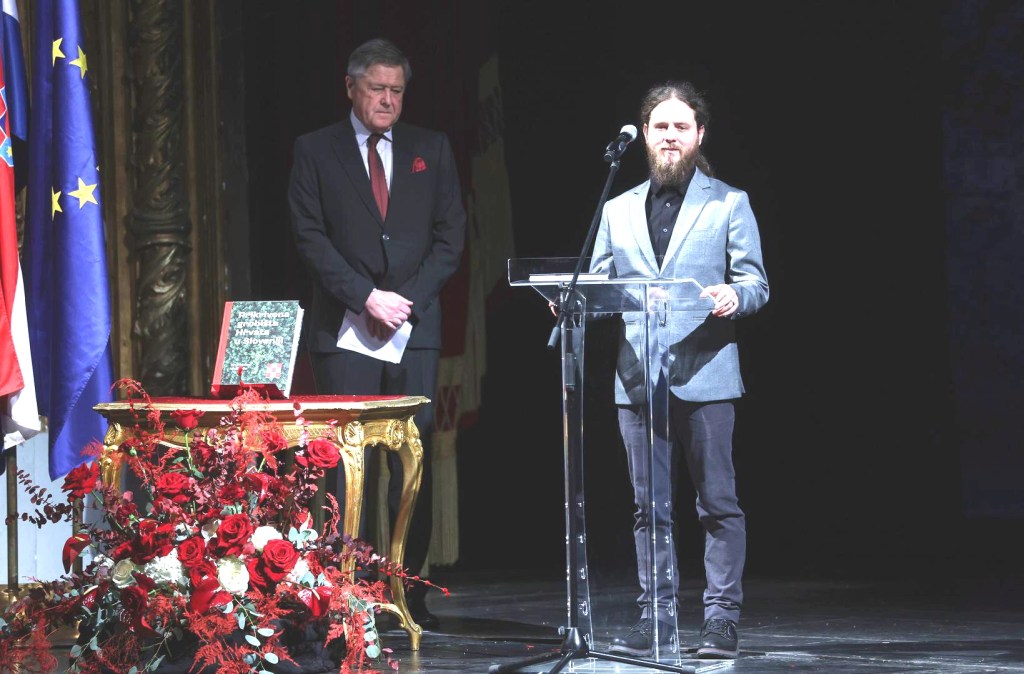
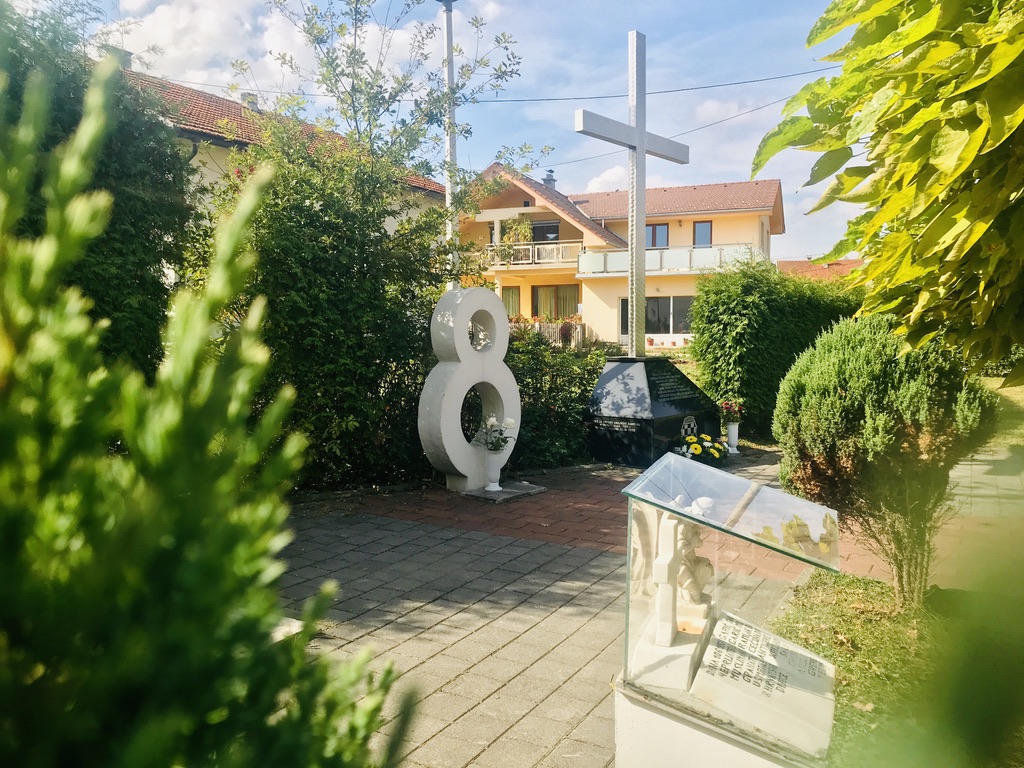
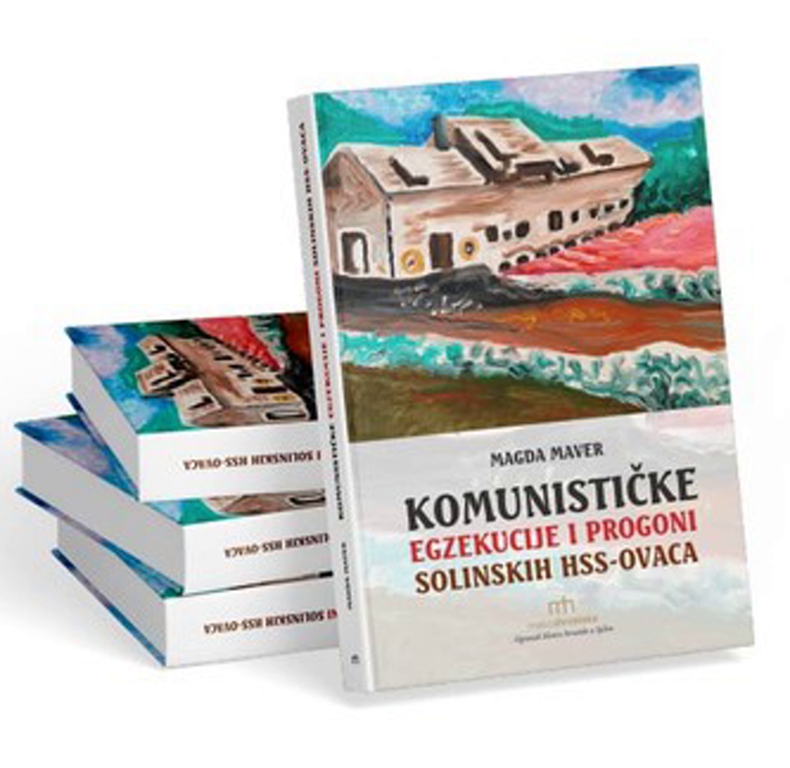

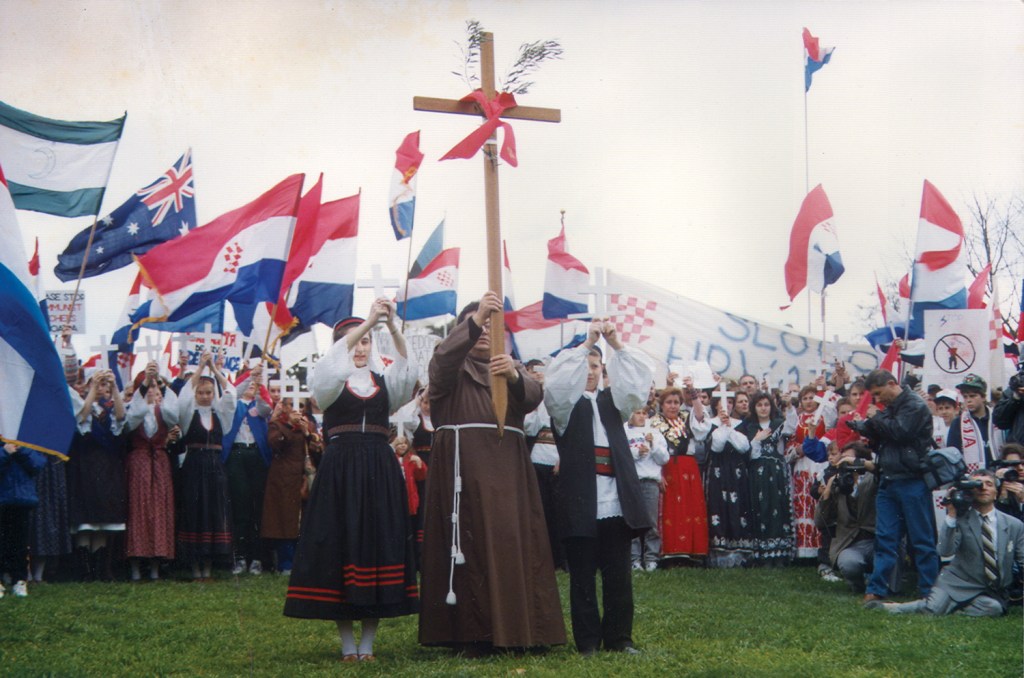
Leave a reply to Velebit Cancel reply